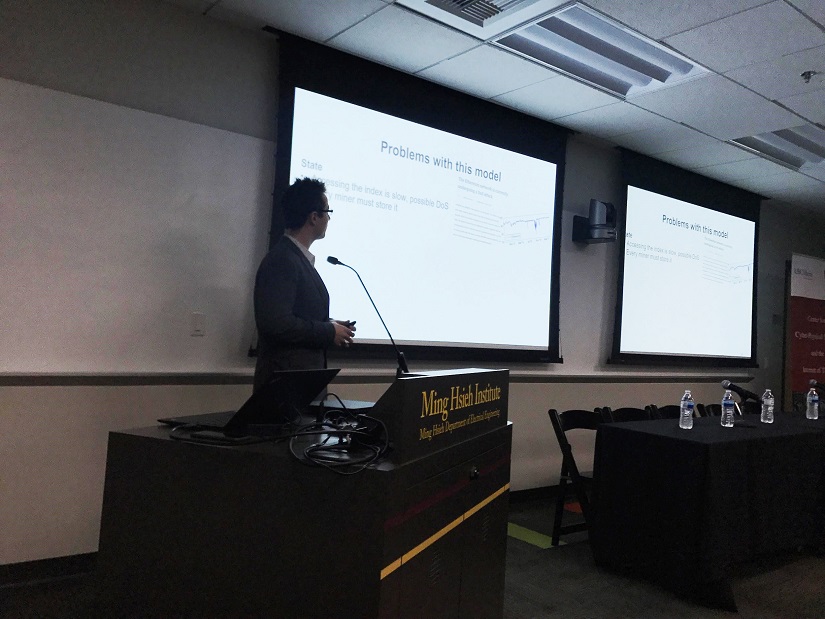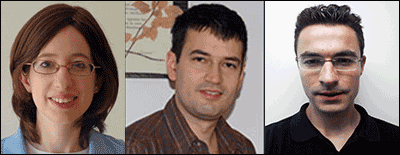News Story
Papamanthou Receives NSF CAREER Award to Improve Security in Cloud Computing
Published March 28, 2017
A University of Maryland expert in computer security and applied cryptography has won a National Science Foundation (NSF) Faculty Early Career Development (CAREER) award for a project designed to improve security in cloud-computing systems.
Charalampos (Babis) Papamanthou, an assistant professor of electrical and computer engineering in the Maryland Cybersecurity Center (MC2), is principal investigator of the NSF award, expected to total $450,000 over five years.
The funding supports efforts for designing new frameworks and protocols that can provide security, availability and privacy to common classes of cloud applications, which in turn can lead to improved performance for everyday users of cloud applications.
“Working with a group of talented graduate students and postdocs at the Maryland Cybersecurity Center, we have built provably-secure systems that scale to gigabytes of data—something I believed was closer to science fiction as recently as a few years ago,” says Papamanthou, who has an appointment in the University of Maryland Institute for Advanced Computer Studies (UMIACS).
Still, Papamanthou adds, his research group has only scratched the surface of the technical problems involved, and he is excited about the future scientific paths that the NSF award will support.
For example, targeted applications like Dropbox, Gmail search and Google Maps will benefit from enhanced security and privacy guarantees—particularly those that require small overhead in terms of execution time, required bandwidth, and client and server memory footprint.
With a growing number of individuals, enterprises and government entities migrating their data and applications to software and hardware platforms in the cloud, lowering the burden of managing IT resources on-site is critical, Papamanthou says.
His group’s project will provide security and privacy guarantees with much lower performance costs by leveraging features such as functionality type (storage or computation), computation logic (sequential or parallel), and program specification (relation of inputs and outputs).
“The work by Babis and his group in the Maryland Cybersecurity Center can have a broad impact on computing resources used by government, industry and the public. We are happy that the National Science Foundation is supporting his research in this area,” says Mihai Pop, professor of computer science and interim director of UMIACS.
To see a video overview of Papamanthou’s research and innovation in security for cloud computing, go here.
MC2 is supported by the College of Computer, Mathematical, and Natural Sciences and the A. James Clark School of Engineering. It is one of 16 centers and labs in UMIACS.
—Story by Melissa Brachfeld
**
“CAREER: Towards Practical Systems for Trustworthy Cloud Computing” is supported by NSF grant #1652259 from the NSF’s Division of Computer and Network Systems.
PI: Charalampos (Babis) Papamanthou, assistant professor of electrical and computer engineering with an appointment in the University of Maryland Institute for Advanced Computer Studies (UMIACS).
About the CAREER award: The Faculty Early Career Development (CAREER) Program is an NSF activity that offers the foundation’s most prestigious awards in support of junior faculty who exemplify the role of teacher-scholars through outstanding research, excellent education and the integration of education and research within the context of the mission of their organization.



